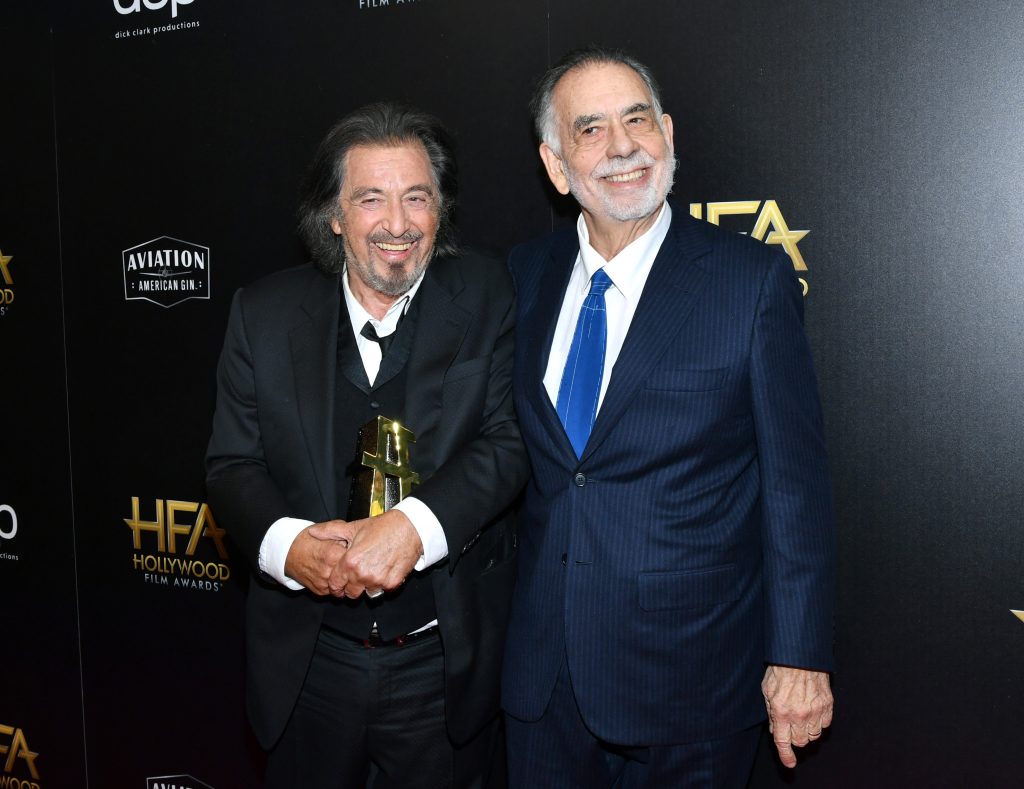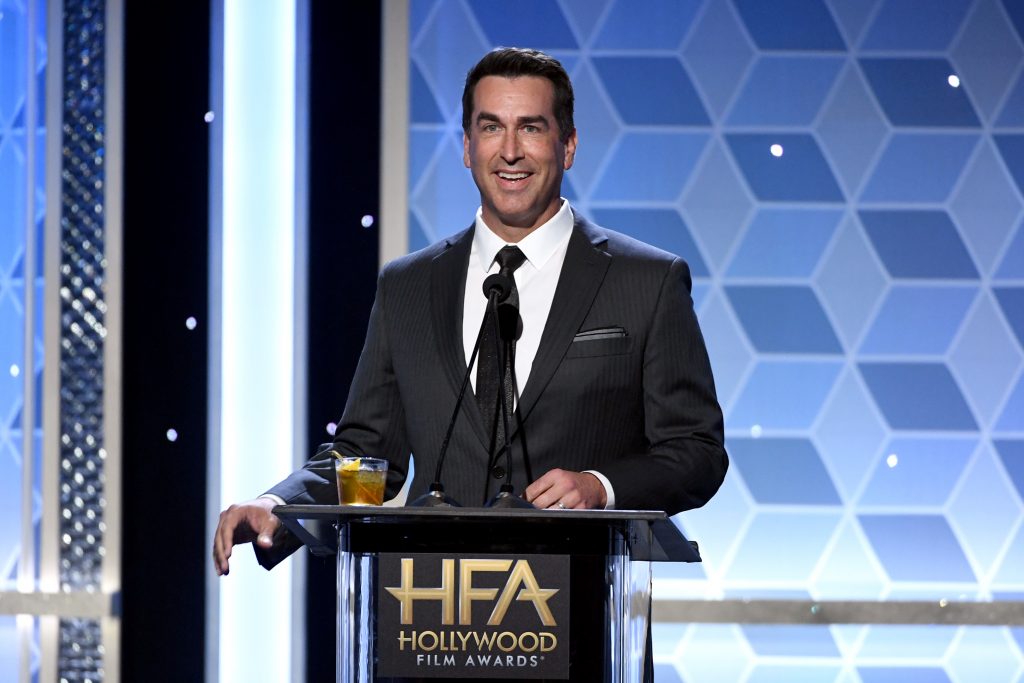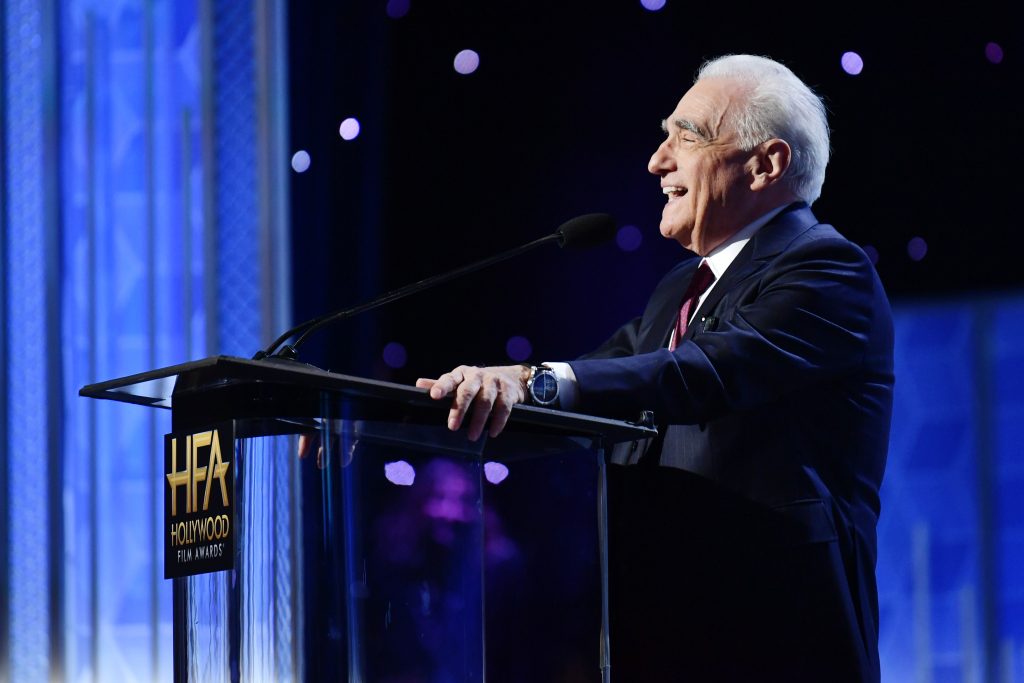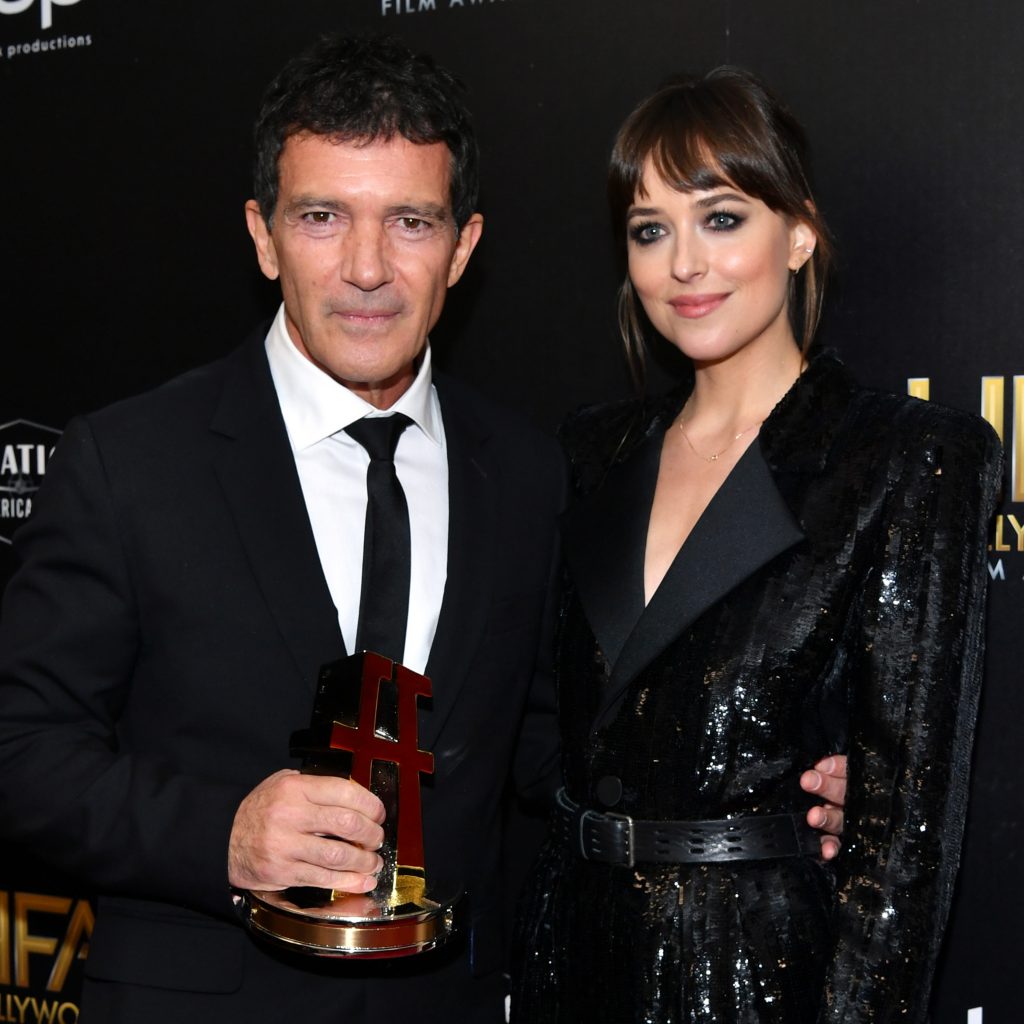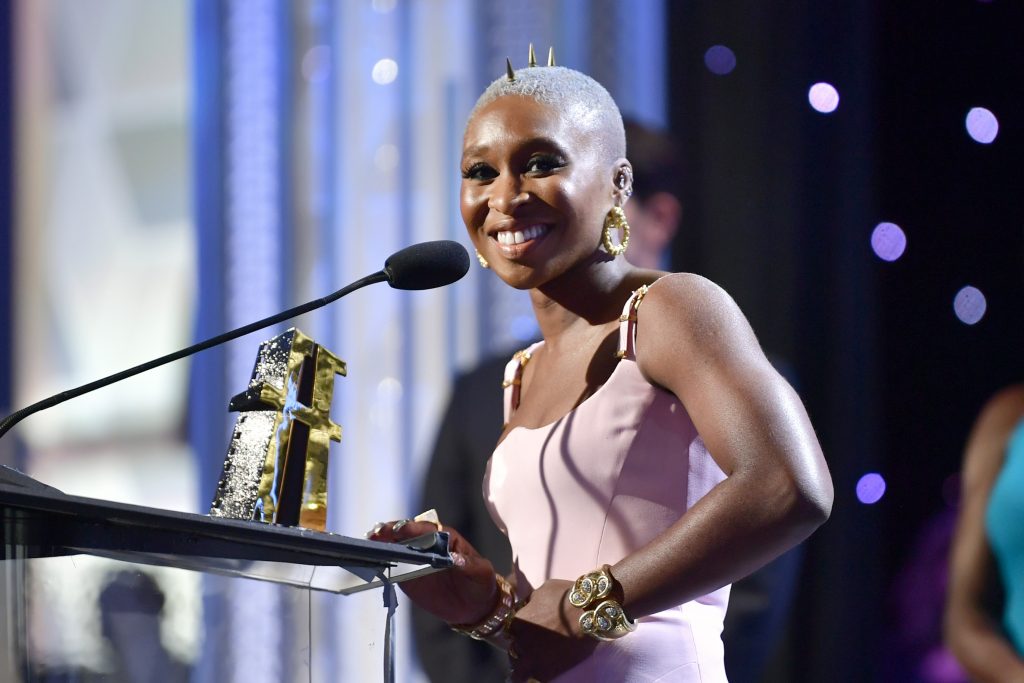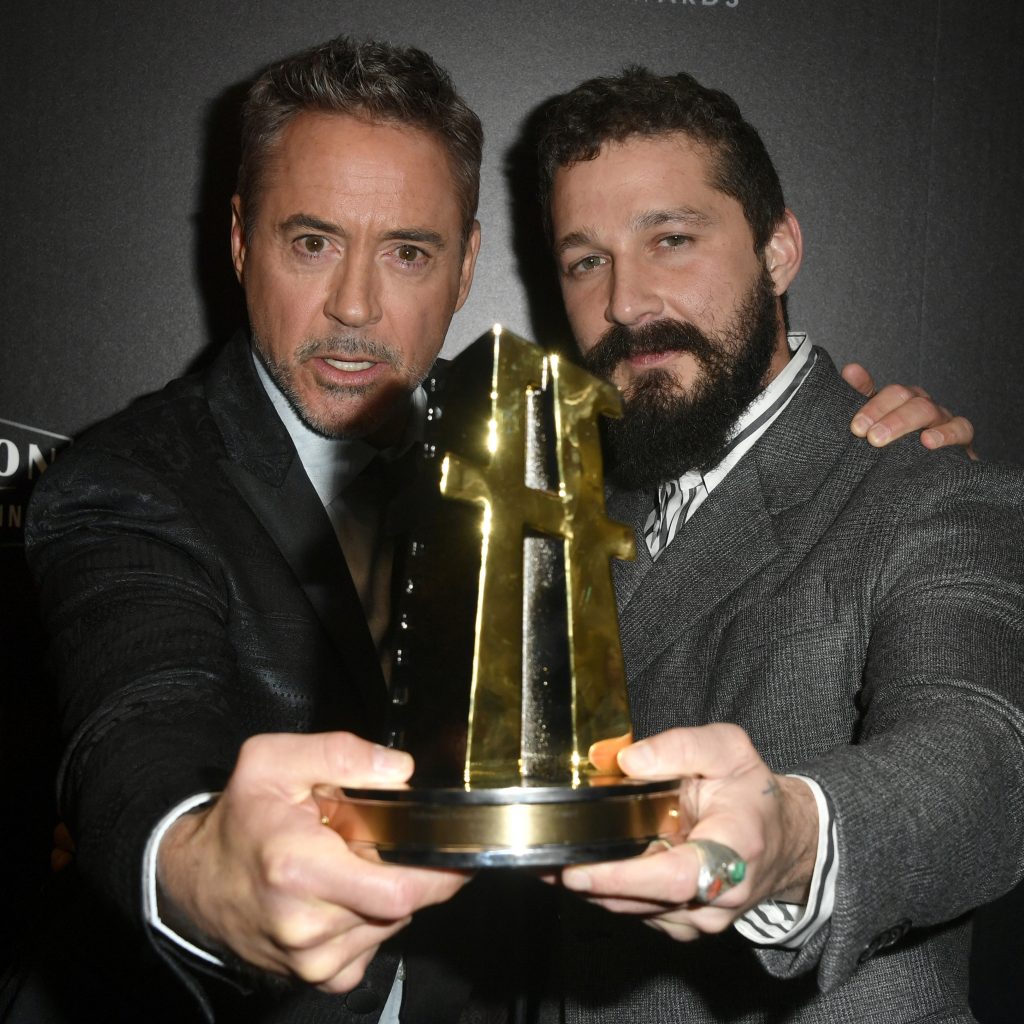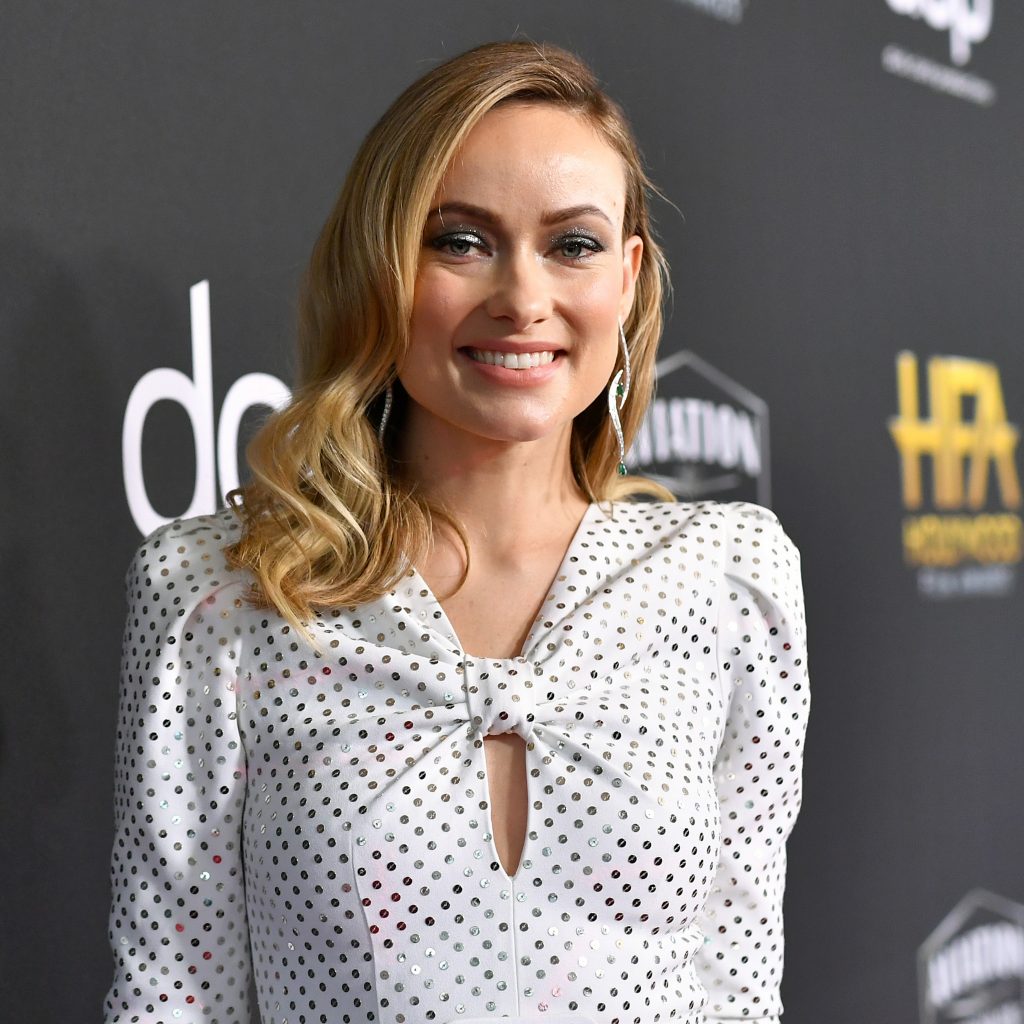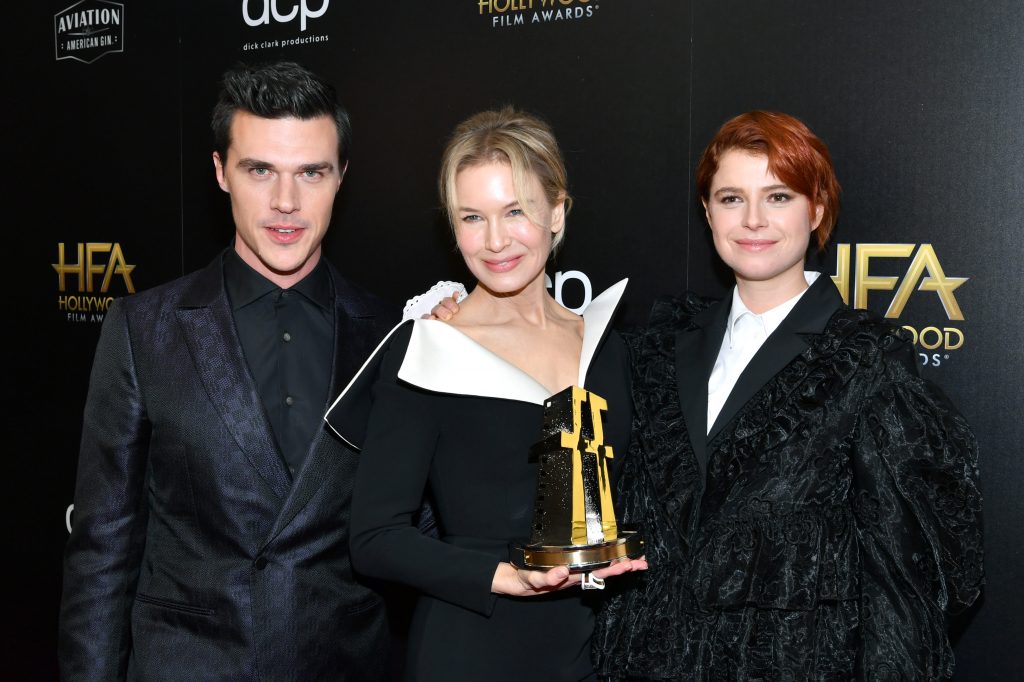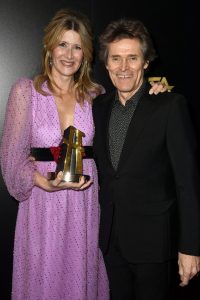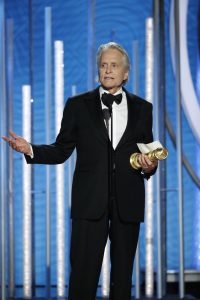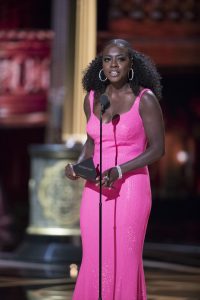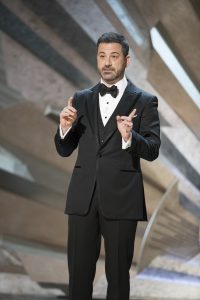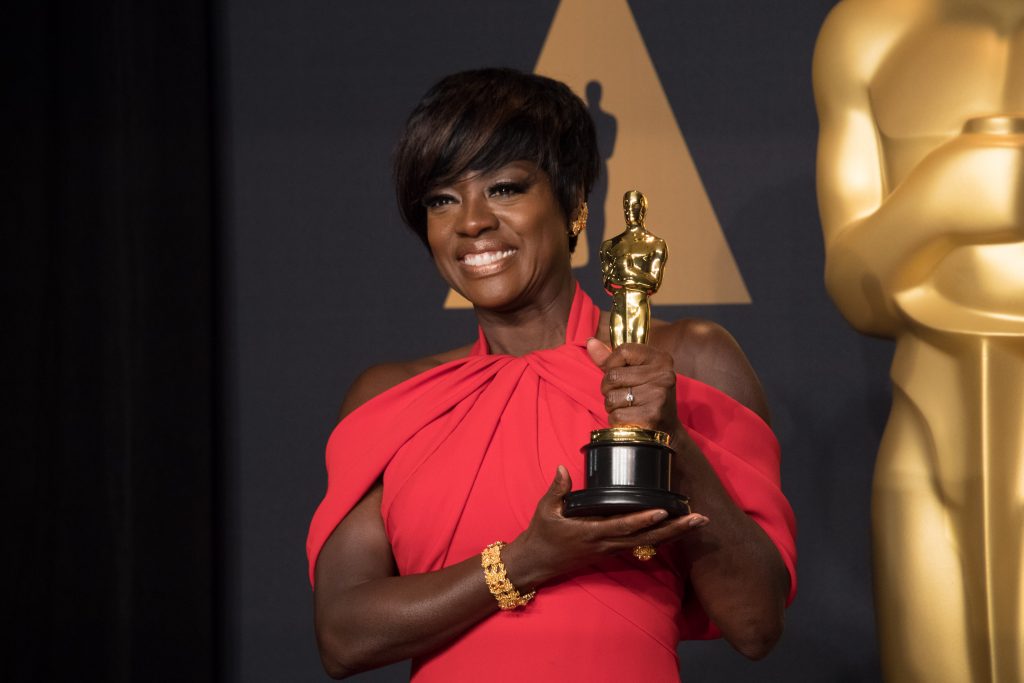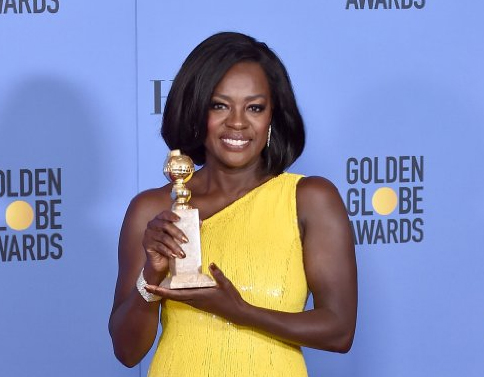January 17, 2020
by Carla Hay
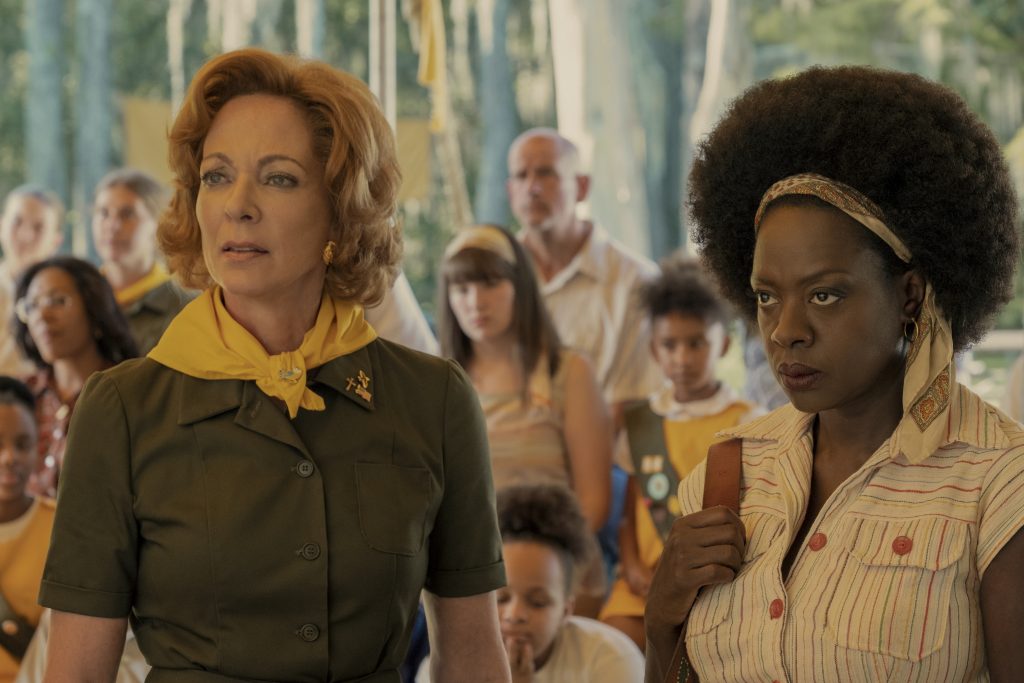
Directed by Bert & Bertie
Culture Representation: Taking place in 1977, the family-friendly comedy “Troop Zero” has predominantly white American characters (with some representation of African Americans and Latinos) from the middle and lower classes of a rural, conservative community in the U.S. state of Georgia.
Culture Clash: The movie’s plot revolves around a talent competition for middle-school Birdie Scouts, with one rival troop comprised of “popular girls” and another rival troop comprised of “social outcasts.”
Culture Audience: “Troop Zero” will appeal primarily to people who like adorable, slightly kooky comedies about student angst and self-identity.

In a comedy film, a cranky adult reluctantly takes on a group of pre-teen misfits to coach them in a high-stakes competition where the team will be ridiculed underdogs. Is it 1977’s “The Bad News Bears” or 1992’s “The Mighty Ducks”? No, in this case, it’s 2020’s “Troop Zero,” a decidedly different take on a familiar plot outline.
“Troop Zero,” which is set in 1977 rural Georgia, is certainly a throwback to those films from a bygone era when smartphones and social media didn’t dominate kids’ lives. The main differences between most films of this kind and “Troop Zero” is that for “Troop Zero,” the story is told from the perspective of a girl; the adult leader of the misfit group is a woman; and the movie was written and directed by women.
Directed by female duo Bert & Bertie and written by Oscar-nominated “Beasts of the Southern Wild” co-writer Lucy Alibar, “Troop Zero” has a cute and quirky charm that comes primarily from Christmas Flint (played by Mckenna Grace), an adolescent girl who’s obsessed with outer space and who’s still grieving over the death of her mother from the previous year. The opening scene of the movie shows Christmas trying to contact outer-space aliens with flashlight signals.
Christmas lives with her father, Ramsey Flint (played by Jim Gaffigan), a defense attorney who’s constantly having financial problems because he has many clients who can’t or won’t pay him, and he has a hard time saying no to people he thinks need his help. Ramsey’s assistant/office manager is Miss Raylene (played by Viola Davis), who’s the closest to a maternal figure that Christmas has in her life, even if Miss Raylene says she doesn’t particularly like being around children. “Little girls give me the creeps,” Miss Raylene says in one scene. “You can’t him them no more. They changed the laws.”
Ramsey’s best friend Dwayne (played by Mike Epps) is a fellow Vietnam War veteran who’s suffering from PTSD (post-traumatic stress disorder). Back in 1977, there wasn’t a name for PTSD, so they usually called it being “shell-shocked.” Dwayne is the love interest of Miss Raylene, who’s had her heart broken in her past. She reveals the details in the movie, and it explains why she has such a hard exterior.
Viewers see early on in the film that Christmas is an outcast at her school not only because a lot of students think she’s weird, but also because her father’s financially precarious situation has branded the Flints as “poor trash” by the snobs in the community. Her best friend is Joseph (played by Charlie Shotwell), an androgynous, flamboyant child who might be gay, but the movie hints that Joseph is either gender-fluid or non-binary, because various characters in the movie keep saying that they don’t know if Joseph is a boy or a girl. And since this movie takes place in 1977, there weren’t specific terms for people who might not have a cisgender identity.
Some of the social rejection that Christmas experiences stings her a little bit, but she’s mostly content to do her own thing and hang out with Joseph. She’s not really concerned about being well-liked and joining groups until she finds out that there’s a national talent competition for Birdie Scouts where the winning scout troop will get to have their voices recorded on NASA’s Golden Record, thereby becoming part of space history.
With no way of being accepted by the established Birdie Scout troops in the area, Christmas decides to start her own Birdie Scout troop. The style-minded Joseph (who likes to wear dresses and loves David Bowie) is immediately up for the challenge and is the first recruit to this new troop. Christmas also ends up convincing these other kids to join the troop: Ann-Claire (played by Bella Higginbotham), an eyepatch-wearing nervous and shy girl who’s devoted to Christianity; Hell-No (played by Milan Ray), the school’s loudmouth bully; and Smash (played Johanna Colón), who’s practically mute and likes to destroy things when she gets angry—a lot like the Incredible Hulk. The Birdie Scout troops have numbers for their names, so Christmas chooses “zero” as the name for her troop, since “zero” can also mean infinity.
The Birdie Scouts of the school are under the supervision of Crystal Massey (played by Allison Janney), the school principal whom the students have nicknamed Nasty Massey. She’s the type of uptight and stern principal we’ve seen many times before in movies, but Janney brings a touch of humanity to the role to convey that Principal Massey must be a pathetic and lonely person for her to take so much pleasure in making life miserable for other people. (On a side note, fans of “The Help” movie should delight in seeing “The Help” co-stars Davis and Janney reunited on screen.)
Principal Massey is already counting on her favorite Birdie Scout troop, Troop Five, to win the competition. Troop Five is the group of popular girls in the school—the types who are cheerleaders, “A”-grade students, and from the communities’ socially prominent families. (The Troop Five members are also stuck-up mean girls.) But to Principal Massey’s horror, Troop Zero qualifies to become a real troop to enter the competition, as long as Troop Zero gets an adult leader. Miss Raylene completely resists the idea at first, but she eventually gives in to Christmas’ relentless pleas for Miss Raylene to become Troop Zero’s adult leader.
Another big challenge that Troop Zero faces is to raise enough money for the competition’s entry fees. They do so by selling cookies from door to door and by offering pop-up beauty salon services to local women. (Joseph is thrilled to be the troop’s best hair stylist.) One of the baking sessions ends up in a predictable food fight when members of Troop Five crash the session.
The hairstyles and clothes aren’t the only indications that this movie takes place in the 1970s. In one scene in the movie, as one of the required Birdie Scout challenges, Miss Raylene leaves the members of Troop Zero alone to camp out overnight in the woods. That’s not the kind of thing that adults could get away with nowadays. (We have to assume that the parents thought that the kids would be safe with Miss Raylene, but she ends up ditching the children to fend for themselves.)
Her reason for the abandonment is to build character and courage for the troop. It’s the kind of scene that’s cringeworthy to watch for anyone who would never do that to defenseless kids, but since this movie is supposed to be a comedy, you can almost hear the filmmakers make this excuse: “Hey, it was the ’70s!”
Speaking of the ’70s, there’s something very old-school about this kind of film with the basic plot about student angst and “misfits versus the popular ones,” but “Troop Zero” has a modern sensibility by including child characters who wouldn’t be in movies that were made back in the 1970s. (Joseph is a perfect example.)
The precocious and determined Christmas is also ahead of her time, since she has no hesitation about her goals to join NASA and go into outer space. It’s a dream that people around her discourage her from having, because the naysayers tell her that being an astronaut is a “man’s job.” And what happens during Troop Zero’s talent routine during the competition is something that wouldn’t have been in a children’s movie that was made back in the 1970s.
“Troop Zero,” which had its world premiere at the 2019 Sundance Film Festival, is not just a movie that will appeal to girls or women. It has a message of self-acceptance and how to overcome obstacles that can resonate with a wide variety of people, if you don’t mind sitting through the retro vibe and familiarity of it all.
Amazon Prime Video premiered “Troop Zero” on January 17, 2020.

